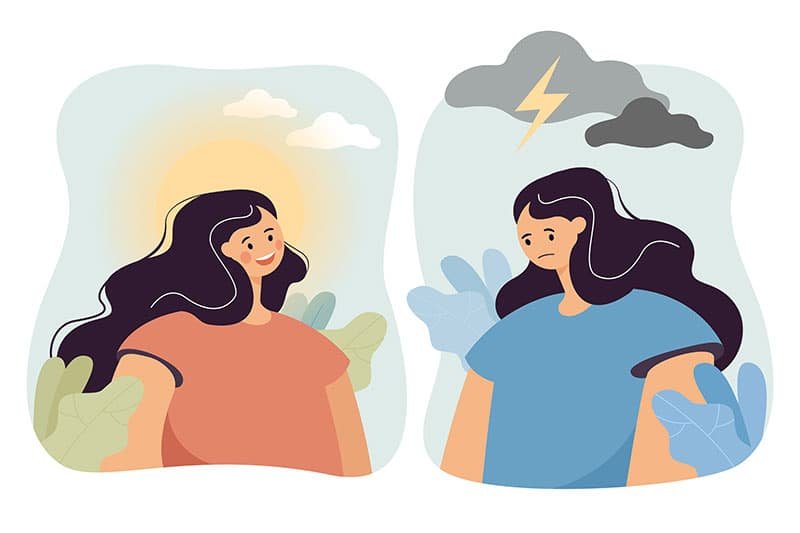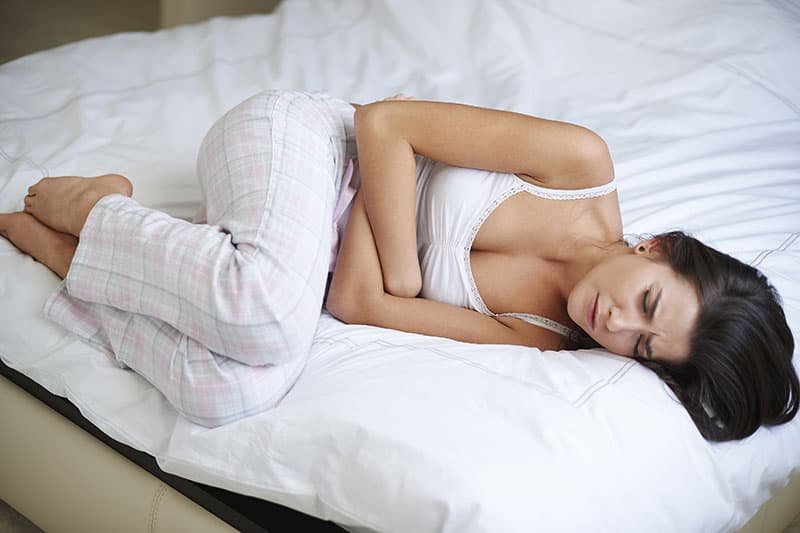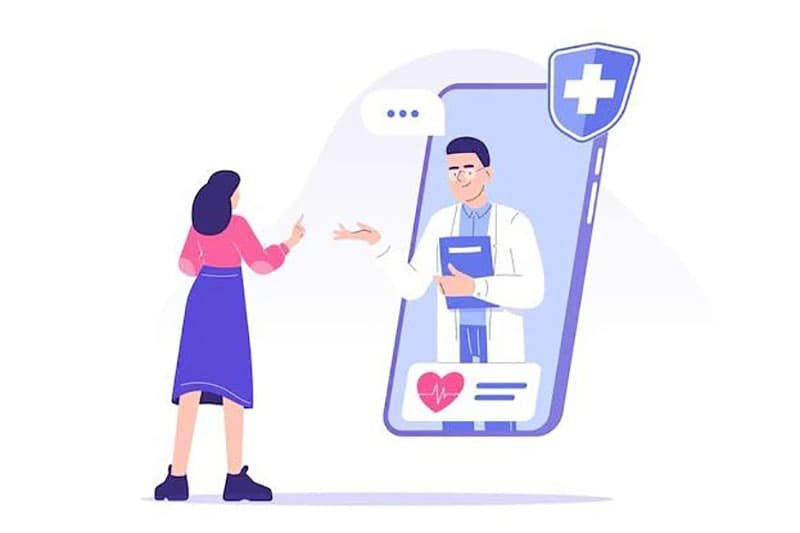Talk to a Psychologist for Online Counselling
Book Appointment 100% Private & Secure
Convenient, 100% anonymous, safe, certified professional counseling online.“Menstruation is just a way of your body letting go of something that is no longer needed” – Adriana Vandelinde
Leena a woman in her 30+ years, was going through several issues. Irregular periods, irregular flow, irritability, severe gastritis, constipation, bloating, water retention, weight gain, and above all terrible mood swings. She was good one day and really in a bad mood the other day. It was like she was always ready to pick up a fight with her husband. She was upset with the physical and emotional changes going on. She visited her Gynecologist. Her doctor assessed the pattern and diagnosed her with Pre-Menstrual Syndrome.
Premenstrual syndrome is a condition that occurs every month just before a few weeks or a few days of the onset of the menstrual cycle. This is a common problem that most women experience who are of reproductive age. Women as young as 25 and above may go through this phase. Women go through varied hormonal changes at every stage of life. Right from the time of attaining puberty till the time of menopause, a woman’s body undergoes many hormonal changes, that are backed by physiological, and psychological changes.


Premenstrual syndrome (PMS) has a wide variety of signs and symptoms, including mood swings, tender breasts, food cravings, fatigue, irritability, and depression. It’s estimated that as many as 3 of every 4 menstruating women have experienced some form of premenstrual syndrome. Comorbid conditions, like thyroid and other health issues too, add to the PMS woes.
Symptoms tend to recur in a predictable pattern. But the physical and emotional changes you experience with premenstrual syndrome may vary from mild to intense. Some lucky women do not experience PMS in their productive lifetime. Hence it depends upon the biology of the individual.
Causes Of Pre-Menstrual Syndrome
Changing hormones are considered as the culprit though, yet exactly what causes premenstrual syndrome is unknown, but several factors may contribute to the condition:
1. Changes in hormones
Signs and symptoms of premenstrual syndrome change with hormonal fluctuations and disappear with pregnancy and menopause. The hormonal changes begin from the age of 12 yrs. and continue till menopause. A girl or a woman might experience mild to moderate PMS issues in the earlier years, but PMS issues become more prominent in middle age.


2. Chemical imbalance in the brain
Fluctuations of serotonin, a brain neurotransmitter that plays a crucial role in mood instability, could trigger PMS symptoms. Insufficient amounts of serotonin may contribute to severe mood swings, premenstrual depression, fatigue, food cravings, and sleep problems.
Some women with severe premenstrual syndrome issues have undiagnosed depression. Women feel more depressed, get suicidal thoughts, and experience bouts of crying for no apparent reason.
Symptoms of PMS (Premenstrual Syndrome)
The symptoms of PMS (Premenstrual Syndrome) may vary from woman to woman. Hence there is no yardstick to mention which symptom fits the bill. Most of the symptoms are due to a hormonal issue in which estrogen plays a major role. Here are the most common symptoms that women go through during their PMS days.


- Bouts of headache, migraine this is the most common symptom experienced by many women
- Over sleepiness or sleeplessness that is hypersomnia or hypo somnia
- Gastritis is another common problem
- Moderate to severe constipation
- Diarrhoea (some women go through idiopathic diarrhea before or during their menstrual cycle)
- Nausea or morning sickness is another symptom that troubles women with PMS
- Stress, anxiety, and depression for no apparent reason
- Terrible mood swings are a major symptom that disrupts normal life of many women with Premenstrual syndrome
- Some women experience extremely low libido levels whereas some might crave more
- Low levels of energy, feeling weak
- Cravings for certain foods
- Shortness of breath before the menstrual cycle, which is mostly associated with low levels of hemoglobin
- Altered levels of the thyroid that add to the premenstrual woes
- Bloating, water retention, and little weight gain that goes away as soon as the menstrual cycle is over
- Dizziness and experiencing a foggy mind
- Feeling excessive thirst (feeling dehydrated)
- And increased urination
- Joint pains in women mostly over 40 years before the onset of menses
- Lethargy is a common symptom in women during PMS
- Stomach cramps, backache before and during menses
- Some women experience low appetite whereas some women might experience an increased hunger that is mostly associated with low glycaemic levels before and during menses
Treatment and plan
Though the exact cause is not yet known for PMS, a drop in the levels of Progesterone and Estrogen levels causes PMS (premenstrual syndrome). There is a major change in the brain chemicals, vitamins, and micronutrient deficiency during this period, hence PMS symptoms become more prominent.


The treatment and plan for PMS include a combination of medicines and lifestyle changes. One can also opt for alternative medicine after consulting a doctor. Counselling also helps to handle the PMS issues. Most of the symptoms can be managed with this and one must visit a gynecologist to rule out other issues and proper handling of PMS.
- Taking vitamins, minerals, and micronutrient supplements as advised by the gynecologist
- Including fresh fruits and vegetables in the diet
- Drinking water more often in small quantities to check dehydration and excessive urination and water retention issues. Using a hot bag will provide comfort during menstrual cramps.
- Taking proper rest and practicing relaxation techniques will help you deal with headaches and mood swings
- Getting enough sleep helps a lot and hypersomnia and hyposomnia can be put under check. One can ice put an ice pack on the head to reduce the severity of the headache
- Eat small portions of healthy food throughout the day instead of having one or 2 large meals. This helps to deal with hypoglycemia
- Cutting down on excessive caffeine consumption will help in reducing. acidity and other sleeping disorder issues.
- Avoid spicy, oily, and other foods that may exaggerate gastritis issues and may cause constipation or diarrhea
- Follow a health regime, exercise, or indulge in other outdoor exercises or indoor activities to meet the serotonin levels in the brain
- Talk to your gynecologist or talk to an Online Counselling Psychologist who will help you to deal with the PMS woes
How online counseling helps to deal with PMS issues
Premenstrual syndrome is not a disease. It’s a condition where hormonal imbalances after the smooth functioning of the daily life of many women. There is no exact medicine for this condition, and it lasts for a few years till menopause. Hence this requires a combination of therapy and medication.


PMS is not a big thing, but many multiple small issues make it difficult for the smooth functioning of normal life. Hence talking to an online counselling therapist is a wonderful idea, where one can avail guidance from the experts while sitting in the comforts of the home.
Best counseling services at OnlineCounseling4U
Here at OnlineCounseling4U, we have well-trained therapists who are experts in their relative fields and always desperate to guide you when in need. Our counselors will help you with various steps and strategies to manage your mood swings, anger management issues, and other issues related to PMS.
“Women complain about premenstrual syndrome, but I think of it as the only time of the month that I can be myself.” – Roseanne Barr
Call us to book a session today.
Contact us at +91 9811335150
Email us – info@onlinecounselling4u.com
Follow us on Facebook or Instagram
Talk to a Psychologist for Online Counselling
Book Appointment 100% Private & Secure
Convenient, 100% anonymous, safe, certified professional counseling online.

